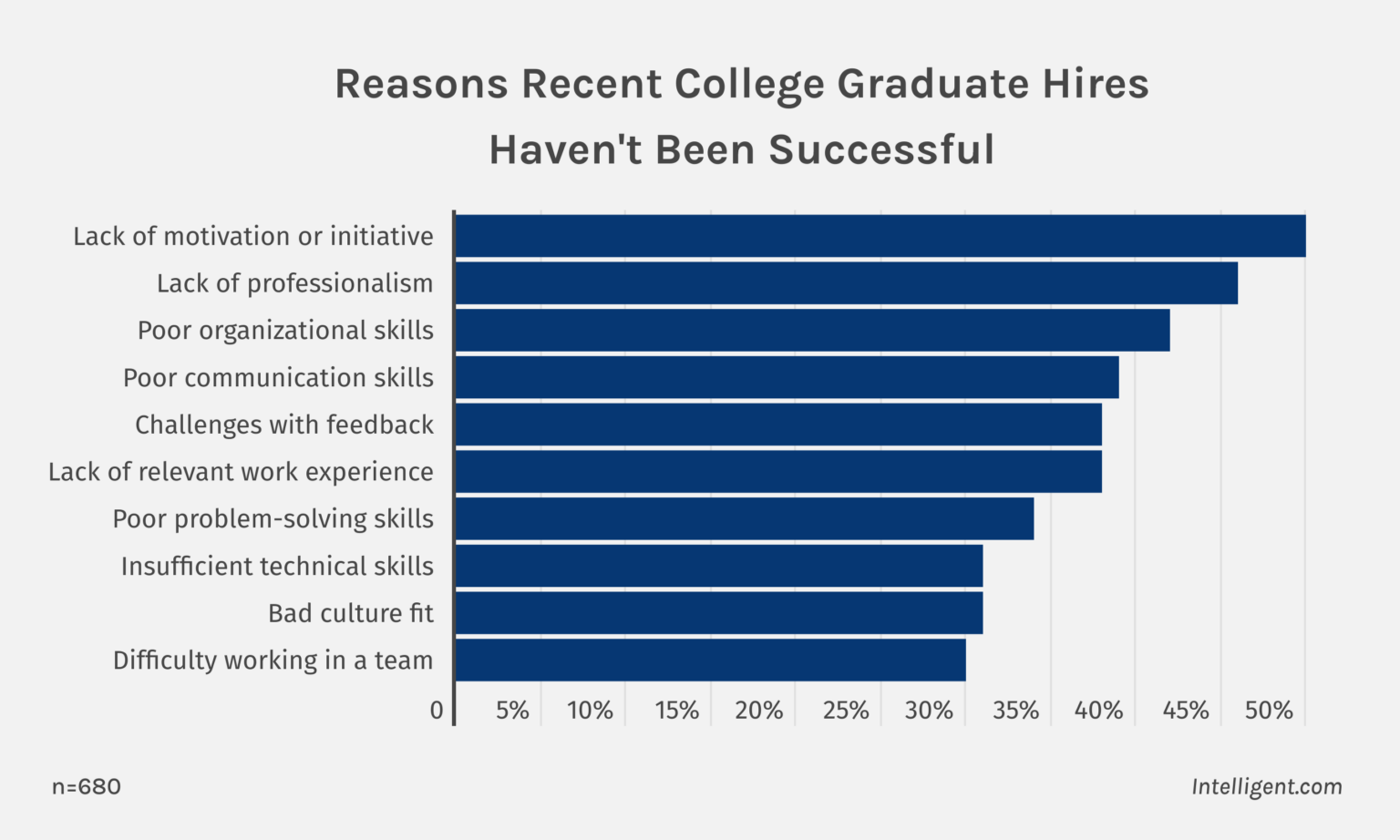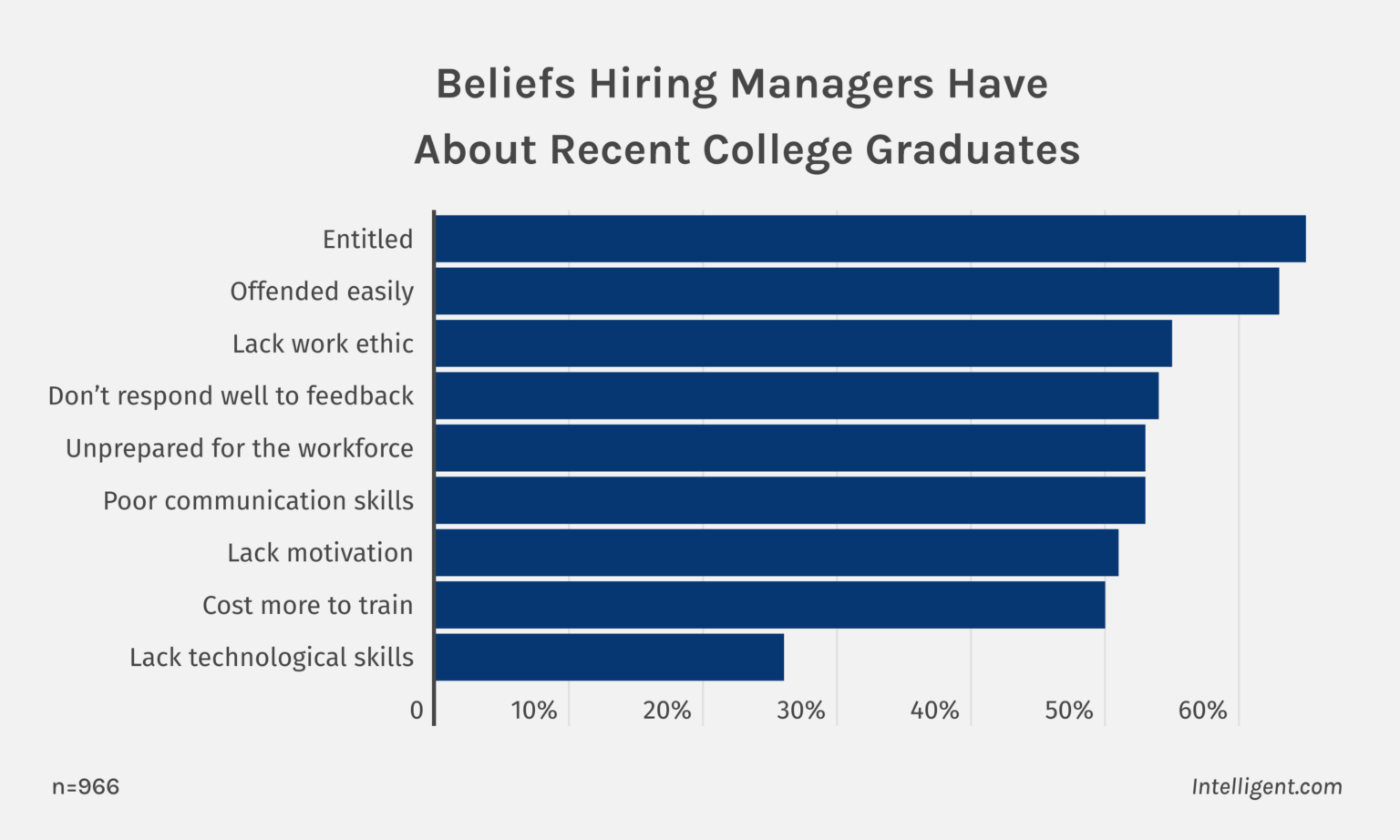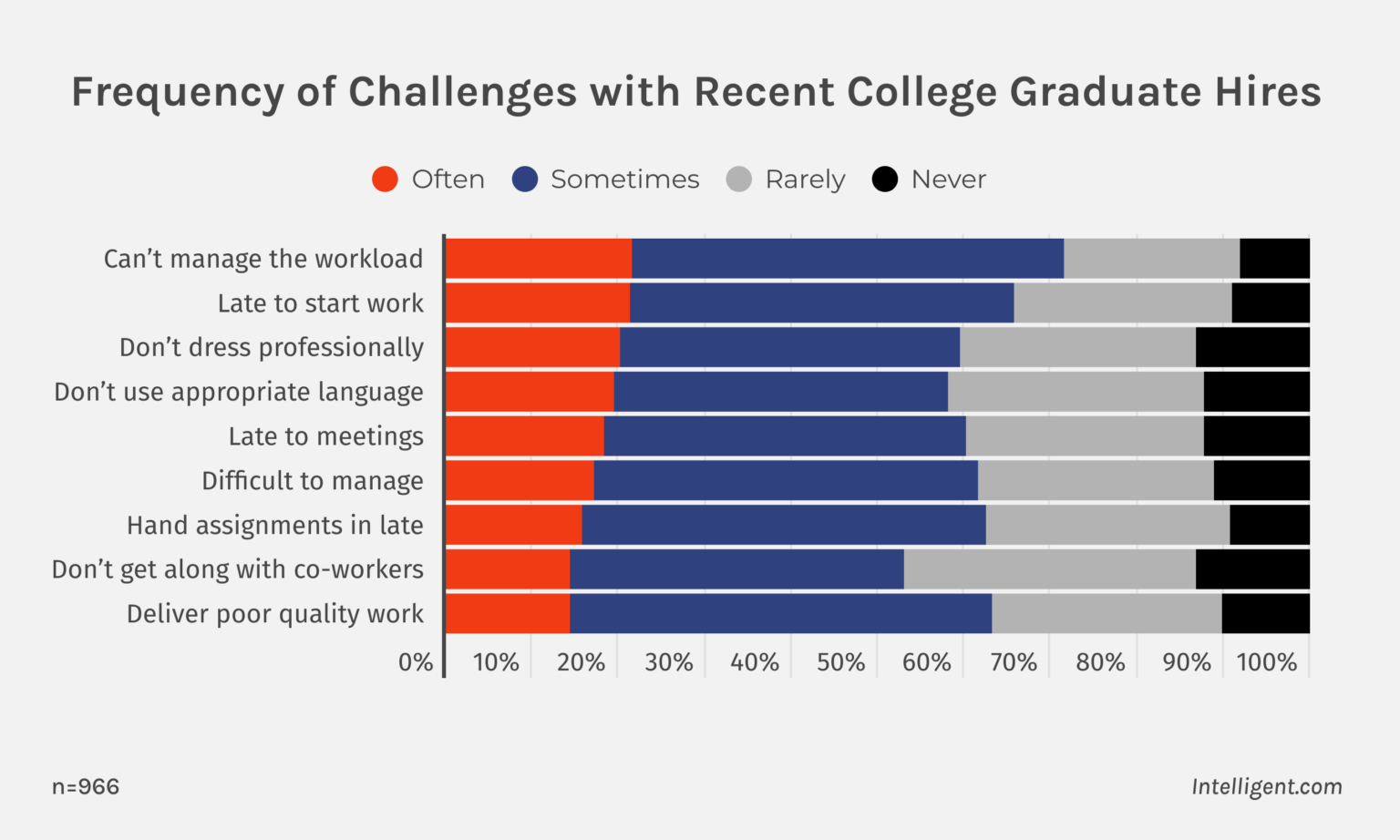
Hiring managers cite lack of professionalism, poor work ethic and communication

Six in 10 organisations have terminated recent college graduates as they express dissatisfaction about these hires, according to a new report from Intelligent.com.
The report, which polled 966 business leaders involved in hiring decisions, revealed that 79% of companies had to place some underperforming hires on performance improvement plans.
Another 60% said some of them were eventually fired.
The terminations come as 75% of employers say that some or all of the recent college graduates they hired this year were unsatisfactory.
Half of the respondents also said the reason why these hires didn't work out was because of their lack of motivation or initiative. Others cited their lack of professionalism (46%), poor communication skills (39%), struggles with feedback (38%), and inadequate problem-solving abilities (34%).

According to the report, more than 60% of hiring managers also believe that recent college graduates are more entitled and easily offended. They also believe that recent college graduates lack work ethic, and do not respond well to feedback.

In fact, some of the common challenges that they faced with recent college graduate hires include their inability to manage their workload, being late to work, and not dressing professionally.
They also do not use appropriate language, are often late to meetings, and are difficult to manage, according to the respondents.

Huy Nguyen, Intelligent's Chief Education and Career Development Advisor, attributed recent college graduates' struggles in the workplace to the "huge contrast" of environment from what they are used to while studying.
"They are often unprepared for a less structured environment, workplace cultural dynamics, and the expectation of autonomous work. Although they may have some theoretical knowledge from college, they often lack the practical, real-world experience and soft skills required to succeed in the work environment," Nguyen said in a statement.
"These factors, combined with the expectations of seasoned workers, can create challenges for both recent grads and the companies they work for."
As a result of these challenges, one in six hiring managers said they are hesitant to hire recent college graduates, while one in seven said they may not hire these applicants in 2025.
Nguyen warned that managers may easily fall for typical stereotypes of these recent graduates, and as a result, dismiss them entirely.
"However, companies have an equal responsibility to prepare recent graduates for their particular workplace and give them the best chance to succeed," Nguyen said.
One way to address the problems with this group of employees is by pairing them with mentors who can provide guidance, feedback, and support.
"By understanding the challenges of Gen Z workers, companies can take a more proactive approach by implementing formal employee onboarding programs that clearly outline company culture and expectations," Nguyen said.